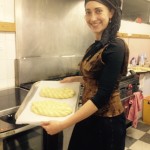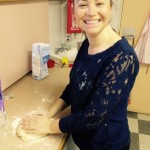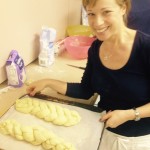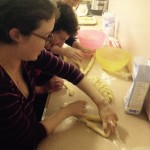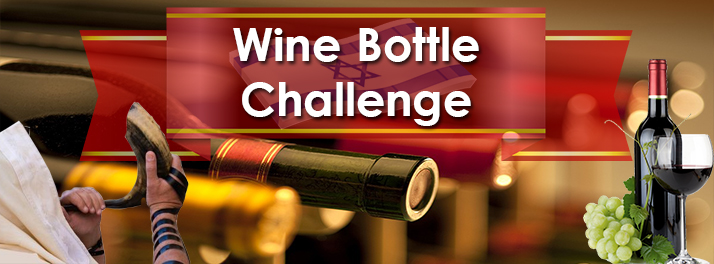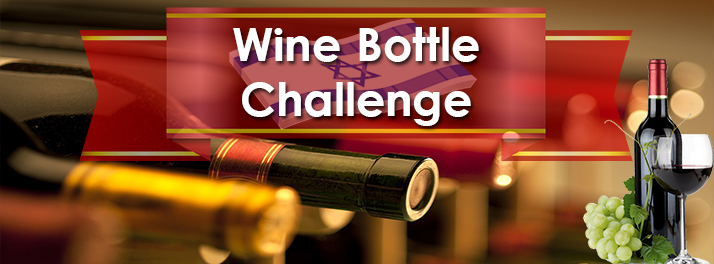The Significance of Fasting on Yom Kippur; Fasting while Pregnant; Fasting while Nursing/Breastfeeding
This will be my fourth Yom Kippur since being married. For some reason, I remember the Yom Kippur before my marriage and all of those since, but the ones earlier than that fade into the oblivion of memory.
In the Yom Kippur before my marriage, what I remember has nothing to do with fasting. I remember most distinctly Kol Nidre. I remember preparing myself beforehand, thinking about all the wrong I’d done in the year. I focused deeply on repenting for those sins and when I stood for the Kol Nidre prayers in the Young Israel of Miami, I cried.
My first Yom Kippur as a married woman is the first time the fasting aspect features distinctly in my memory. Our first high holidays ever spent together took place in Mexico City and I woke up in the wee hours of the morning with what tourists like to call “Montezuma’s Revenge.” Well, I don’t know what Montezuma wanted revenge on me for, but it must have been pretty serious. By the time the fast was nearing, I was severely dehydrated, could hardly keep down water, and couldn’t even look at food. A doctor came by and prescribed medication for me and the local rabbi declared that it would be dangerous for me to fast. Instead of fasting, I was allowed one shot glass of liquid (I went for Gatorade) every 10 minutes; same for rice. Although the truth was that on Yom Kippur, I found it just as painful to eat and drink as to not. By the end of the fast, I was very weak in spite of the permission not to “fast.” But hey, at least I was keeping food down.
My second Yom Kippur as a married woman I was at Newtown Synagogue in Sydney, Australia. I was pregnant with Akiva, but because I was in my first trimester, nobody knew. It was my first time fasting while pregnant and it was incredibly difficult. Truth was, I didn’t have much of an appetite in those days. My morning sickness was so terrible that I balked at the sight of food – sometimes even was made ill at the sight of it. Yet, the only cure I had found for my morning sickness (at least with that pregnancy!) was to eat some crackers and drink some juice and water. The longer I went without eating, the more nauseous I became. If I ate anything too much, I got sick, too. So for the Yom Kippur fast, I felt more and more sick. If I stood to pray during services, I couldn’t control my nausea anymore and so had to sit for 95% of the time. Ladies from the synagogue later confessed that they knew I was pregnant by how sick I was during that fast!
My third Yom Kippur as a married woman I was at Greenslopes Synagogue in Brisbane, Australia. I wasn’t pregnant, but I was full-time nursing four-month-old Akiva, who was, Baruch Hashem, a voracious eater. For days ahead of time, I expressed milk so that I would not have to feed him quite as much. Unfortunately, he developed a fever erev Yom Kippur, which of course made him more thirsty than normal! But beyond an unearthly thirst, I don’t remember the fast being particularly difficult. It was in the days after when my milk supply was too low to feed my still-feverish baby that I had the most difficulty. For me, last year’s Yom Kippur lasted more than one day – for me, it lasted a whole week!
This year I am pregnant again for Yom Kippur. I’ve weaned Akiva (which was so easy to do I still don’t understand what the fuss is about), but at nearly 8 months pregnant, fasting is a very different experience than when you’re 8 weeks pregnant. You see, fasting causes all sorts of changes in your body. Decreased sugars make your blood sugar levels drop – and not just yours, but baby’s, too. Lack of fluid causes dehydration and drops blood pressure. Both low blood sugar and low blood pressure can result in a reduced flow of essential blood and glucose to all parts of your body – including your brain – and your baby. This is why some people become faint, dizzy, lightheaded, or even pass out while fasting. Of course, while you’re pregnant, your baby takes what it needs from you first, leaving you with even less resources than the person fasting next to you. And when you run out of resources, you won’t be the only one feeling it – your baby will, too.
That’s why at every stage of pregnancy, a rabbi should be consulted before fasting, preferably one who is well-versed in halacha in this area. A doctor should be consulted, too, to determine the level of danger to the baby. You see, when a baby doesn’t receive enough of what it needs to survive, it can go into distress. And a baby in distress will often go hand-in-hand with early labor. That’s why there are such a large number of babies born on or just after Yom Kippur or Tisha B’Av.
If the baby is small enough, it is unlikely to need such a large amount of resources that it would go into distress from fasting. If the baby is big enough, it is no problem if the baby’s stress causes the womb to open – it’s already healthy and fully-formed – just the world outside appears to be more hospitable than the world within. But there is a point when fasting can be truly dangerous for a baby. If the mother has complications like placenta praevia or preeclampsia, for instance. Or if the baby is in that kind of twilight zone where it’s big enough that it could go into distress and labor could begin, yet is still too young to enter the world without serious risk of permanent health problems. I fall into that latter stage. A baby born before 37 weeks of gestation has immature lungs, low birth weight, and a long list of potential complications. So if your doctor considers that fasting would be a danger to the baby, then your rabbi should know – and you should always ask, even if you really, really want to fast. According to halacha, if fasting is dangerous, then it is forbidden, and it is as much of a mitzvah to eat and drink during a fast for health reasons as it is for a healthy person to fast fully.
All of this left me thinking this year about what the meaning of fasting really is. Most people seem to wish each other an “easy fast,” but is that really the point?
I can think of three times when a person loses their appetite completely: someone who is very ill, someone who is deeply mourning, and someone who is incredibly nervous (as in, someone whose life is at stake). These three types of people generally have no interest in food. In all three cases, you feel the weight of your mortality. Whether you feel your life is about to end because you could be put on death row, whether the death of someone very close to you brings your own mortality close to mind, or whether you are so ill you fear you might not survive, eating and drinking just seem so secondary.
On Yom Kippur our lives are, quite literally, at stake. G-d is deciding our fate for the upcoming year and we are at risk of being put on death row. This is why we do kapparot – we slaughter a chicken to remind ourselves that it is us who deserve to die for all the sins we’ve done. We throw ourselves on G-d’s mercy to save us. And if we have only one chance – literally – to save our skins, then we’d better take it pretty seriously. On a day like that, how can we think about eating or drinking?
Unless, of course, not eating or drinking will end our lives. In that case, we have to eat. Just as a doctor will force an anorexic to have sustenance even if they do not want to eat, we must force ourselves to eat an drink if our life (or the life of our baby) is at stake. We must do it in a way that shows we are not doing it for the pleasure of it, but because we have to. We cannot sit down to a delicious steak dinner and say, “Well, I have to because I am so sick.” If a rabbi tells us we must eat or drink on Yom Kippur, we must do so in a way that does not give us pleasure – a tablespoon of water at a time, a mouthful of plain rice, a plain crust of bread. Enough to survive, but not enough to give us great gustatory joy.
After all, when your ultimate fate is at stake, when your life hangs in the balance, eating a delicious meal is the last thing on our minds. We are Jews: we do not live to eat… we eat in order to live.
Shabbat shalom and may you all have a meaningful fast!
Read more about Yom Kippur in Sydney, Australia
Read more about Yom Kippur with the Jewish community in New Caledonia
Read more about Yom Kippur: Facing Your Truth
Read more about Yom Kippur & Jonah: Talkin’ About a Revolution
Read More

 David Avital, a 32 years old software engineer and entrepreneur has the answer. David lives in Israel, where kosher food is readily available. But David for a number of years worked at Marvell semiconductor as Marketing Manager. “My job, says David, “had me doing so much business travel around the world that I had to change my watch 3-4 times a month. At that time I was traditional Jewish and I found myself drawing closer to my origins while away from home. While being abroad I started to visiting local Jewish centers around the world and started to connect with my Jewish roots strongly. As I began learning more, I started to follow Shabbat and become a stricter kosher observer.”
David Avital, a 32 years old software engineer and entrepreneur has the answer. David lives in Israel, where kosher food is readily available. But David for a number of years worked at Marvell semiconductor as Marketing Manager. “My job, says David, “had me doing so much business travel around the world that I had to change my watch 3-4 times a month. At that time I was traditional Jewish and I found myself drawing closer to my origins while away from home. While being abroad I started to visiting local Jewish centers around the world and started to connect with my Jewish roots strongly. As I began learning more, I started to follow Shabbat and become a stricter kosher observer.”

